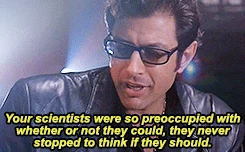Spanish Actress Creates Baby With Dead Son’s Sperm, Sparking Surrogacy Controversy
Clinging to surviving grandchildren after you lose your child is a normal reaction to grief. But should you be able to create those grandchildren after your child dies?

Spanish actress Ana Obregón lost her 27-year-old son Aless to cancer in May 2020. In March 2023, she announced the birth of his newborn daughter Anita.
Yes, you read that right. The child was conceived in June 2022, more than two years after her father died, according to The New York Post. How is this possible?
With her announcement, Obregón ignited a global debate over the ethics of gestational surrogacy. Baby Anita was gestated by a U.S.-based surrogate and was born in Florida. (All forms of surrogacy, both altruistic and commercial, are illegal in Spain.) The infant is Obregón’s adoptive daughter but her biological granddaughter. It’s unclear who the baby’s mother or egg donor is – Aless froze his sperm and stored it in New York before he died.
“I swore I would save you from cancer, and I failed you. I promised you I'd bring your daughter into the world, and here she is in my arms,” Obregón wrote in an Instagram post announcing the birth. “When I hug [her] I feel an indescribable emotion, because it's like I'm hugging you again.”
Obregón has experienced the kind of grief that no parent would ever want to go through, but her extreme example points to the moral quandaries involved in gestational surrogacy.
Black Mirror or Real Life?
In the last few decades, scientists have used technology to combat infertility. Gestational surrogacy was once a rare occurrence. There were less than 750 embryo transfers to surrogates in the U.S. in 1999. In 2019, there were more than 9,000, according to CDC data.
But infertility is hardly the issue at play in Obregón’s case. The situation sounds like a Black Mirror episode – a determined mother uses the wealth and technology at her disposal to obtain a grandchild despite tragic loss.
Compared to many European countries, the U.S. has extremely lax laws surrounding surrogacy, which international elites can use to their advantage. It’s a system that needs to be reformed, Kallie Fell, Executive Director at the Center for Bioethics and Culture, tells Evie in an exclusive interview.
Children from donor conception deserve to know their biological and birth mothers.
“Celebrities using surrogate mothers is nothing new. What is relatively new is the desire for family members to use sperm from a deceased relative,” Fell says. “In cases like this, adults fail to acknowledge that children from donor conception deserve to know their biological and birth mothers. The only way to protect women and children is to prohibit international surrogacy arrangements and to prosecute those like Obregón that take advantage of commercial surrogacy tourism.”
“While this story highlights the painful loss of a mother grieving her son and the attempt at fulfilling a promise to bring about his daughter, it does not make right the fact that both surrogacy and egg ‘donation’ fail to protect women and children, often leading to even greater confusion and grief,” Fell says.
Surrogacy Politics in Spain
Thanks to Obregón, surrogacy is now a hot-button political issue in Spain. The ruling Socialist party is highly critical of surrogacy and wants to tighten the regulations that allowed Obregón to create a child abroad and “register” her in Spain, reports Sky News. Spanish government officials called gestational surrogacy “a form of violence against women” and “exploitation of a woman's body” in reaction to the news, whereas Spain’s opposition party signaled openness to revisiting the complete surrogacy ban during this election year.
Meanwhile, the U.S. lags behind many European countries that have strict regulations surrounding sperm donation, surrogacy, and more.
Media Coverage Matters
Celebrities, including Paris Hilton and Jamie Chung, have admitted to using gestational surrogates for personal rather than medical reasons. But surrogacy is no longer just for the rich and famous. The Free Press recently published an article on the booming surrogacy industry.
“The democratization of birth – surrogacy for the everyman – is on the way. The question is, are we ready for it?” writes Suzy Weiss in The Free Press.
Weiss paints surrogates as caring women who value helping people first and getting their fee second. In her interviews with the surrogates, it’s clear they are attached to the children they carried for nine months but will never get to see again since they don’t share DNA. It remains to be seen whether these children will face lifelong repercussions after being cut off from the women who birthed them.

If surrogacy becomes more mainstream, more media coverage is sure to follow. But reporters and readers can’t gloss over the issues that come with it, especially in Obregón’s case.
“When it comes to commercial surrogacy, journalists love to emphasize the pathetic and cathartic aspects of particular stories … this woman’s son died, and now the gods of science have offered an answer to her loneliness,” Helen Roy, contributing editor for The American Mind, tells Evie. “It’s a seamless narrative. Moral questions are easily swept under the rug of pity. Who wants to look at a grieving mother, in her grief, and say ‘no’ to her desires without equivocation? No one wants to, but that doesn’t change the moral status of her choice. As difficult as it may be to admit, no one is entitled to things simply because they believe those things will make them happy. This sort of breathless, indulgent, sadly commonplace reporting is a form of emotional manipulation and intimidation.”
Closing Thoughts
Surrogacy – like IVF – is a relatively new solution to fertility issues, one made possible by modern medicine. But that newness also means we should be asking how are the humans involved in the surrogacy process – especially the children born from it – actually affected? Because we can’t treat children as a commodity that “solves a problem” for us.
Don’t miss anything! Sign up for our weekly newsletter and get curated content weekly!